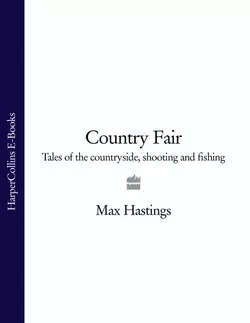Country Fair

Макс Хейстингс
Тип: электронная книга
Жанр: Современная зарубежная литература
Язык: на английском языке
Стоимость: 2303.31 ₽
Статус: В продаже
Издательство: HarperCollins
Дата публикации: 16.04.2024
Отзывы: Пока нет Добавить отзыв
О книге: A new collection of rural writings celebrating the pleasures of the country life – in particular fishing and shooting – by the eminent military historian and former editor of the Daily Telegraph, Max Hastings.Max Hastings is known as a best-selling author of military histories (The Battle of the Falklands, Bomber Command, Armageddon, etc.) and as a former editor of the Daily Telegraph and Evening Standard, but his first loves are the countryside and its pursuits.Whether walking up grouse in Scotland, tramping through snipe bogs in Ireland or catching salmon on the Tweed, this collection of articles and essays will delight all those who share his passions.There are also trenchant essays on some of the big issues facing Britain’s’ rural areas: intensive farming, gun ownership, access to the countryside and, of course, the controversial issue of fox hunting.